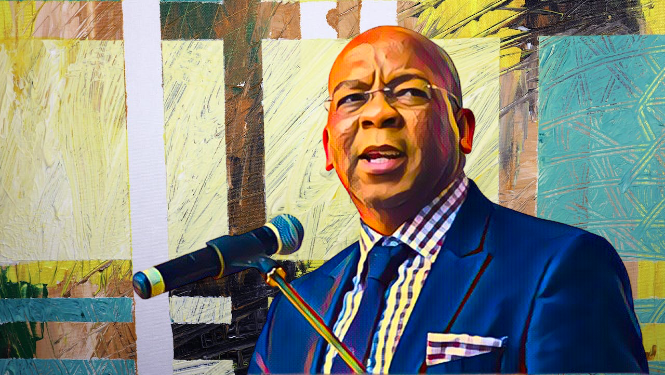The decision to establish a separate energy portfolio with Dr. Kgosientsho Ramokgopa of the African National Congress as Minister and Samantha Graham of the Democratic Alliance as Deputy Minister has been widely praised by stakeholders and commentators.
Warnings have surfaced that the success of the new Electricity and Energy Ministry will be judged not only by ending load-shedding but also by how it navigates South Africa through the complex energy transition. This transition needs to address immediate threats to supply security and affordability while ensuring long-term sustainability and competitiveness.
Business Unity South Africa’s energy and environment policy director, Happy Khambule, welcomed the creation of the standalone entity. Previously, the energy portfolio was merged with mineral resources. The ministry’s separation, along with three others, increased the number of Cabinet posts to 32 from 30 and Deputy Ministerial positions to 43.
James Mackay, CEO of the Energy Council of South Africa, supported the “focused” ministry. He believes it bodes well for tackling broader energy challenges and advancing the national energy transition.
Similarly, Professor Anton Eberhard of the University of Cape Town called the restructuring a “good development.” He noted that the Electricity Regulation Act (ERA), including electricity planning and procurement, would now fall under Ramokgopa, facilitating more effective implementation than under the previous Mineral Resources and Energy Minister Gwede Mantashe.
However, Eberhard warned that merging petroleum with Mantashe’s new Mineral and Petroleum Resources Ministry could have unintended consequences, especially for proposed gas-to-power projects.
Brian Day, CEO of the South African Independent Power Producer Association (SAIPPA), raised concerns about clarifying the “petroleum” aspect of the minerals and petroleum portfolio. Khambule emphasized the need for an integrated approach to energy, highlighting South Africa’s challenges beyond electricity insecurity.
Khambule pointed out the impending gas supply cliff, lack of clarity in energy planning, and crucial decisions regarding energy procurement investments. Urgent interventions are also needed for transmission and reticulation networks.
Energy commentator, Chris Yelland praised Ramokgopa for his vigorous approach to reducing load-shedding. Yelland believes Ramokgopa’s efforts have brought new energy and confidence to the energy sector. SAIPPA’s Day noted Ramokgopa’s positive impact and expected even greater influence in his new role.
Dr. Rethabile Melamu, CEO of the Solar Photovoltaic Industry Association, highlighted the good relationship established with Ramokgopa during his previous role. Melamu looks forward to collaborating with Ramokgopa to enhance energy security through solar resources.
Niveshen Govender of the South African Wind Energy Association praised Ramokgopa’s role in stabilizing the power supply and expressed optimism about his ability to address wind industry challenges. Govender stressed the need for policy and strategic intervention to ensure a stable and reliable electricity supply.
Eberhard noted that the new ministry should improve the situation compared to Mantashe’s tenure, during which only 150 MW of new publicly procured electricity was introduced.
Mackay highlighted the need for direct capital investment of R1.8 trillion in the electricity sector over the next ten years, potentially unlocking over 500,000 jobs. However, numerous policy, regulatory, and implementation hurdles must be overcome, making it essential for the ministry to “hit the ground running.”
Khambule emphasized the importance of implementing key energy sector reforms and advancing the Just Energy Transition. He argued for the swift promulgation and enforcement of the amended ERA legislation, awaiting President Ramaphosa’s signature.
Mondi from the Energy Intensive Users Group of South Africa stressed the urgency of signing the ERA into law to transform the industry and achieve energy security, price affordability, accessibility, and decarbonization.
Khambule also highlighted the need for immediate attention to the Gas Amendment Bill, the South African National Petroleum Company, and the National Nuclear Regulator Amendment Bill. There are serious concerns about the state of energy regulation, amplified by frequent legal challenges to the National Energy Regulator of South Africa (Nersa).
Khambule stressed the importance of Nersa adopting an appropriate Electricity Price Determination Methodology and resolving issues related to subsidy charges and special subsidies.
Yelland emphasized the need for far better planning, including finalizing an Integrated Energy Plan by March 2025, as instructed by the courts. He believes the current draft update to the Integrated Resources Plan for electricity should be withdrawn and rewritten before public consultations.
Yelland is particularly concerned about the fragmented distribution sector, where the prevailing tariff methodology fails municipalities and residents, especially the most vulnerable.
Mondi added that urgent reforms in the electricity distribution industry and municipal systems are needed for sustainability. Major changes in the transmission sector also require careful navigation.
Mackay highlighted the importance of focusing on the National Transmission Company South Africa (NTCSA), which began operating independently under Eskom Holdings on July 1. Expanding grid capacity and integrating market codes, regulations, and industry preparation for trading are critical challenges.
Eskom’s turnaround, decommissioning coal plants, and leveraging the industrialization potential of the energy transition through the South Africa Renewable Energy Masterplan are significant tasks. Tackling these complex problems requires collaboration and partnerships established through the National Energy Crisis Committee and Operation Vulindlela.
“If we can rapidly expand capacity to deal with these challenges, whilst maintaining good governance and reporting on progress, then we will set up our energy sector for success,” Mackay said.
Source: Mining Weekly



